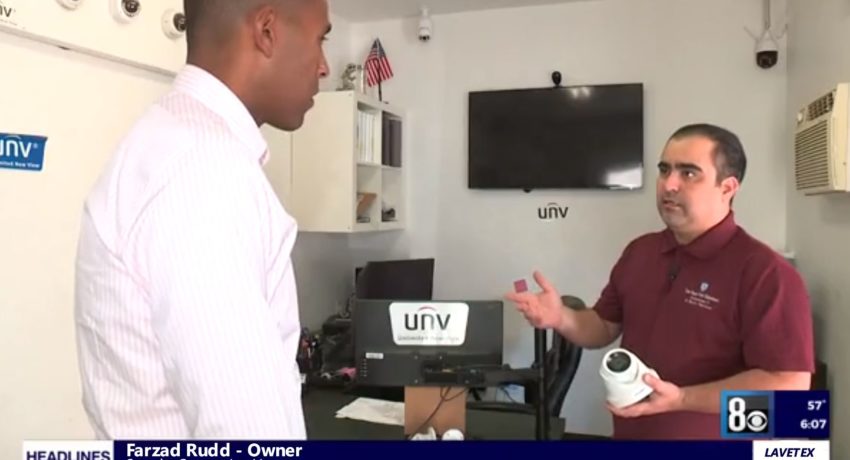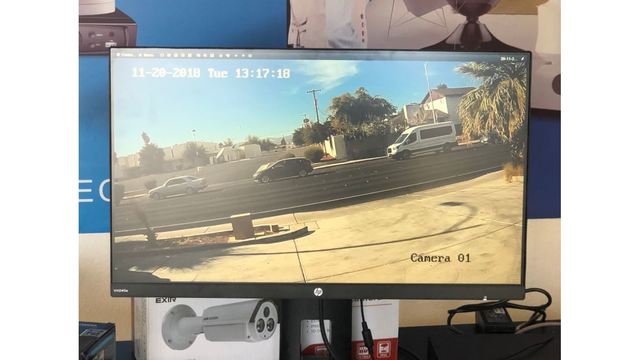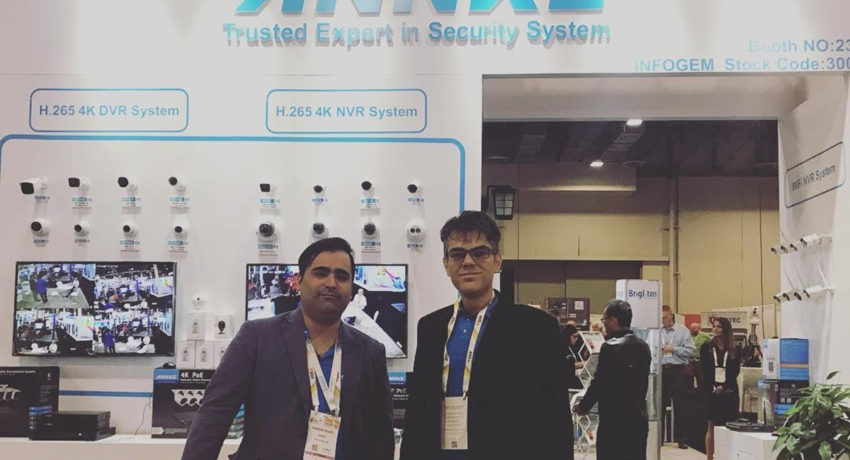Wired Vs. Wireless Security Cameras
Protecting your home is easier than ever with security camera systems. Using either wireless or wired cameras, you can monitor your home while on vacation or at work. When you’re at home, the system acts as a second set of eyes around your property.Wired cameras require more set-up time and effort but offer greater reliability. Wireless security cameras are inexpensive and they set up quickly. But network failure and on-site tampering are possible downsides.
Wired Security Cameras
Wired security cameras transmit video and audio signals through a wire to a central hub. The footage can either remain local on the hub for later viewing or it can be sent outside of the home to a network. The network allows users to view the video live or watch it later.Wired security cameras receive their electrical power via a hardwired cable. This power might come directly from a power outlet. Or the power may be sent through the wire that connects to the central hub: the PoE (Power Over Ethernet) cable.
The central hub is usually located in or around the home. The hub is sometimes a digital video recorder (DVR) that is attached to the cameras with coaxial cables.
Alternatively, the hub may be a networked video recorder (NVR) system, which is used with the newer Internet Protocol (IP) cameras. Instead of coaxial cables, the NVR system uses PoE cables.
Pros
- Clear video and audio signals
- Reliable signals, should not drop
- Constant power to cameras
- Wireless hacking of home system not possible
Cons
- Not portable; system remains with the house if you move
- Lengthy wiring must be hidden
- Wiring must be run to numerous locations
- Number of cameras limited by number of jacks on the DVR
Advantages of Wired Security Cameras
With the prevalence of low-cost wireless security cameras, it’s easy to perceive wired camera systems as a thing of the past. This is far from true. Wired camera systems are a strong option for home security and they offer advantages over wireless systems.The chief advantage of wired camera systems is that the feed to the hub remains safe. The signal will not break or degrade. As long as the wire is in place, the hub should always be receiving the feed uninterrupted and at maximum fidelity.
Wired security camera systems work well for multiple camera installations throughout many rooms of the house and to the exterior because the signal will not be impeded by walls.
Disadvantages of Wired Security Cameras Installation is the main downside to wired security camera systems. Between four and 16 cameras may need to be set up. Because you want to cast a wide view across your home and property, it is not possible to cluster the cameras to save on wiring.
Wires for security cameras are long—hundreds of feet, total. Since few homeowners care to have exposed wiring tacked to baseboards and walls, all wires must be fished through walls, ceilings or crawl spaces.
Wireless Security Cameras
Wireless (and wire-free) security camera systems send footage from cameras placed around the house to the home’s Wi-Fi. The transmission is completely wireless.Once the Wi-Fi receives the signal, it is sent to a cloud server, where footage can be viewed in real-time or it is archived for later viewing. Some cameras have onboard micro SD cards which store a limited amount of footage.
Standard features to expect in wireless and wire-free security camera systems include night vision, two-way audio, 2K HD video, and voice control through your choice of digital assistant (such as Amazon Alexa or Google Assistant).
The distinction between wireless and wire-free systems is important. Wireless cameras’ video signals are sent wirelessly to the central hub, but the cameras receive power through wires.
Wire-free cameras are battery-powered. Because of wire-free cameras’ limited power, they conserve power by recording only when they detect a signal. By contrast, wireless systems receive constant power from the home and are capable of recording constantly. They can also be set to record only when motion is detected.
- Clean installation
- System is flexible, mobile
- Easy to scale up and add more cameras
- Intruders cannot cut wire because there is none
Pros
Cons
- Limited signal range
- Walls, floors and other building elements can impede signal
- Interference with other Wi-Fi-dependent systems possible
- Prone to digital snooping
- Batteries needs changing for wire-free systems
Advantages of Wireless Security Cameras
Wireless security cameras are less invasive to your home than wired cameras, so they set up easier and faster. No drilling through walls or ceilings is required.Wireless cameras also are more flexible than wired systems because they aren’t as tied down by wires. The cameras can easily be rearranged. The entire system can even be moved to a new location—perfect for renters.
With no wire between the cameras and the hub, this also means that there is no wire that intruders or thieves can cut.
If there is a clear line of sight—such as between an outbuilding and the main house—wireless outdoor security cameras may have a range of up to 500 feet.
Disadvantages of Wireless Security Cameras
Wireless security camera systems work well as long as the signal from the cameras to the central hub is clear and uninterrupted.Within the home, wireless systems usually have a range of about 150 feet or less. The wireless signal passes through walls made of drywall and wood studs. But denser building materials like brick or concrete blocks can impede the signal.
Wireless security cameras leave you exposed to digital snooping. To protect yourself, the FTC recommends that the camera you buy should encrypt its data and that your home wireless system should support WPA2 or other wireless security protocols.
Power can be an issue for wireless security cameras, too. Some wireless cameras are battery-powered, so the battery on each individual camera unit must remain fresh. Even wireless cameras that plug into wall outlets can present an issue because each camera must be situated near an outlet.
Wired vs. Wireless Cameras: Which to Buy?
As technology continues to improve, both wired and wireless home security cameras are better than ever. The decision then is which system best integrates with you and your home.Wired Security Cameras
A wired camera system may be best for you if you don’t mind doing some work on the front-end for the long-term benefit of system reliability.You either own the home or expect to be in it for a long while. You’re good with tools and don’t mind poking into a few walls. If you’re not a do-it-yourselfer, you’re fine with hiring a company to set up the wired system for you.
Sources :
Video: https://www.8newsnow.com/video/burglars-caught-on-camera-in-summerlin-home-cause-fear-among-neighbors/8172032/
Research : Forbes” https://www.forbes.com/home-improvement/home-security/wired-vs-wireless-security-cameras/







